UCI-UCLA Kick-Start Collaborative Projects Funded by Samueli Foundation

June 5, 2024 - The schools of engineering at UC Irvine and UCLA share not only the Southern California coastline, but also the name of engineer, businessman and philanthropist Henry Samueli. Both schools are named in honor of the co-founder of Broadcom after he made generous donations to support engineering education and research. And now a recent gift from the Samueli Foundation has inspired 18 new collaborations between faculty at the two schools.
“There is a huge appetite for and potential of building collaborations across the two Samueli Schools of Engineering in critical areas of engineering and sustainability,” said UCI Associate Dean of Research and Innovation Efi Foufoula-Georgiou who coordinated the selection process.
“This initiative is bringing faculty together to explore opportunities and common interests.”
Funding for the projects began in January 2024. Some proposals included workshops in targeted areas of interest, short visits of faculty and students to both campuses, as well as co-advising a graduate student or postdoc to broaden the student’s learning experience and provide an opportunity for faculty to work together. There were also two plans to create new course modules to enable engineering workforce development.
The initiatives chosen focused on efforts that would most likely not be supported by other sources and would provide the seeds for larger collaborative efforts. These include 11 workshops/symposia, one educational activity and one summer module development as well as five early career faculty teams (below) that each received $25,000 to jump start their joint projects.
New UCI-UCLA Early Career Faculty Collaborations
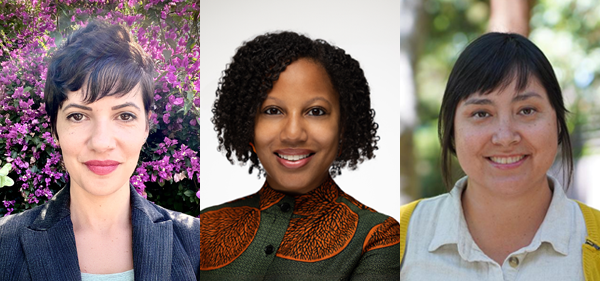
Assistant professors in civil and environmental engineering Elisa Borowski (UCI) and Regan Patterson (UCLA) along with the Institute of Transportation Studies’ Equity Research Manager Adonia Lugo (UCLA) will work together to advance equity and community engagement in transportation. This effort brings together students affiliated with the Institute of Transportation Engineers (ITE) student chapters at both campuses and several local community partners -- CicLAvia, Alliance for Community Transit - Los Angeles, and Communities for a Better Environment. The project will support a panel discussion and site visit focused on environmental justice and equity-informed practices in transportation engineering. Additionally, the faculty will support ITE students in preparing their first submission to the Annual Meeting of the Transportation Research Board to reflect their findings. “This initial cross-campus collaboration between faculty, students and community partners will serve as a foundation for future research endeavors,” said Borowski.
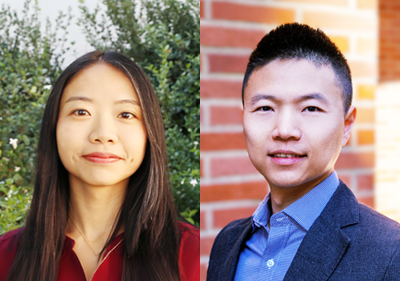
Assistant professor in electrical engineering and computer science Yanning Shen (UCI) and assistant professor in computer science Bolei Zhou (UCLA) are building a graph-based intelligent transportation system. They plan to incorporate novel graph-based modeling to traffic prediction and traffic scene generation, which would enable incorporating spatial information that is prevalent in traffic systems. The research is expected to greatly improve traffic prediction accuracy, as well as the performance of the generative model to create new traffic scenes. The success of the project will benefit the development of intelligent transportation systems, as well as autonomous driving. Furthermore, the research could lead to broader impact beyond intelligent transportation systems, as the fundamental questions being tackled are likely to benefit other multi-agent systems that may emerge in various domains.
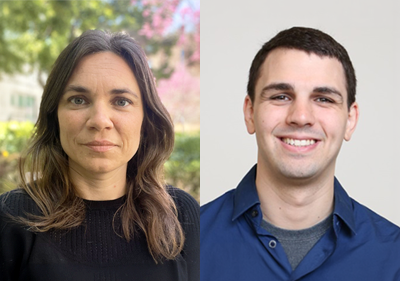
Assistant professors in mechanical and aerospace engineering Alexandra Voloshina (UCI) and Tyler Clites (UCLA) are addressing the complications of ankle-related disorders using wearable robotic devices. Ankle injuries, such as sprains, fractures and osteoarthritis, are commonly treated by fully restricting the ankle joint using braces or in extreme cases surgical interventions. Although immobilizing the ankle in such a way promotes healing, it can result in secondary complications such as muscle weakening and increased stress on the knees and hips. The project will focus on developing a wearable robotic device that will immobilize the biological ankle while emulating the dynamic behavior of the ankle joint. The device will generate motion otherwise provided by a healthy ankle joint, allowing for more natural movement of the knees and hips and a smoother overall gait. This initial collaboration will focus on creating a tethered prototype of the device and set the stage for a larger project to test it with human participants and optimize device control.
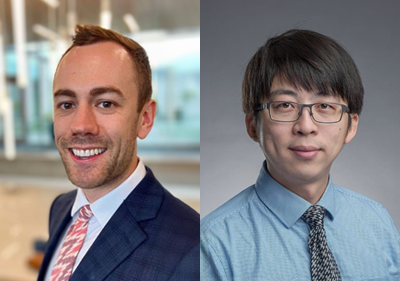
Civil and environmental engineering assistant professor Matt Dean (UCI) and associate professor Jiaqi Ma (UCLA) are looking at sustainable mobility and equitable access to EV charging stations. Public charging stations are growing in numbers to support current and projected future demand, but they’re not always convenient or reliable and can be up to three times the cost of charging at home. Dean and Ma are exploring EV drivers’ perceptions and acceptance of peer-to-peer EV charging services, which is like an Airbnb renting system for chargers. They’re surveying California EV drivers to forecast traveler adoption and use models. To better understand how peer-to-peer EV charging affects EV driver behavior, they will implement these models in a Los Angeles County transportation simulation that captures individual travel behaviors across socio-economic groups. Based on the simulation results, they’ll be able to evaluate the performance of peer-to-peer charging across several key metrics to help the nation address the question, “How do we expand EV charging access for individuals without access to home charging?”
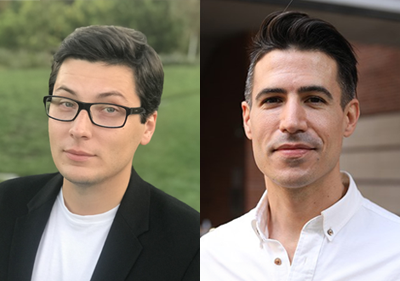
Assistant professors in electrical engineering and computer science Maxim Shcherbakov (UCI) and Sergio Carbajo (UCLA) will study quantum electrodynamics of fast electrons interacting with exotic materials. They aim to explore new regimes of quantum interactions and answer fundamental questions of how the wave nature of electrons manifests itself when they are flying through or passing by specially designed nanoscale structures. The UCI team will develop novel optoelectronic devices based on clean room technologies and two-dimensional materials to impose custom profiles onto electron beam shapes. These novel two-dimensional materials will be leveraged to demonstrate emerging theories of fundamental quantum physics at the unique experimental electron beam facilities at UCLA by measuring electron memory with extremely high temporal and spatial precision.
The support from the Samueli Foundation kicked off what is envisioned as a fruitful long-term collaboration, which has already resulted in a research visit and a submitted joint research white paper. Shcherbakov said, ”We see this as a stepping stone in establishing center-scale research funding on the frontiers of quantum electron-matter interactions at the nanoscale.”
– Lori Brandt
